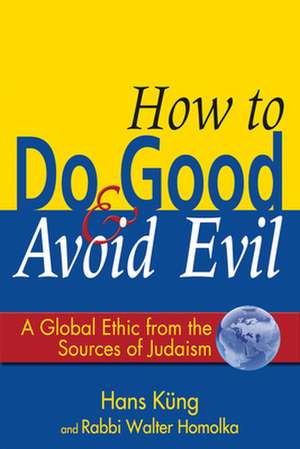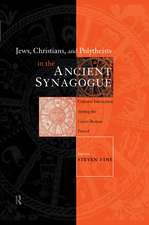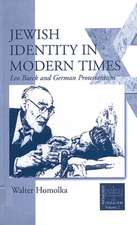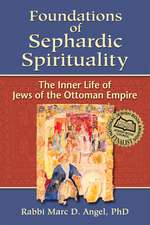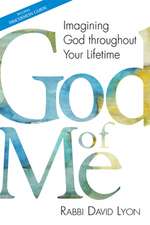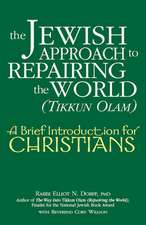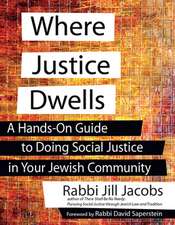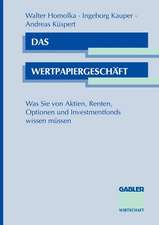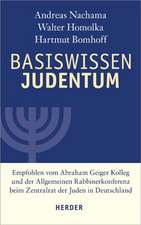How to Do Good & Avoid Evil: A Global Ethic from the Sources of Judaism
Autor Hans Kung, Walter Homolka Traducere de John Bowdenen Limba Engleză Hardback – 31 mai 2009
Explore how the principles of a global ethic can be found in Judaism and how they can provide the ethical norms for all religions to work together toward a more peaceful humankind.
In 1993, the Parliament of the World's Religions endorsed the "Declaration toward a Global Ethic" composed by Hans Kung. In it, representatives from all the world's religions agreed on principles for a global ethic and committed themselves to directives of nonviolence, respect for life, solidarity, a just economic order, tolerance, and equal rights and partnership between men and women. But the declaration was just the first step.
In this impressive volume, Hans Kung, probably the most famous living Roman Catholic theologian, and Rabbi Walter Homolka, head of Germany s Abraham Geiger rabbinical seminary and distinguished professor, draw on the Jewish tradition to show the riches that Judaism can offer people of all faiths and nonbelievers in achieving these directives.
Presenting key sacred texts and theological writings, the authors make the case for binding values and basic moral attitudes that can be found in Judaism s universal message of a better world. Exploring Judaism s focus on ethical conduct over declarations of faith, the authors show that making ethical decisions is indispensable in an ever-changing world."
| Toate formatele și edițiile | Preț | Express |
|---|---|---|
| Paperback (1) | 75.61 lei 3-5 săpt. | |
| – | 75.61 lei 3-5 săpt. | |
| Hardback (1) | 115.46 lei 3-5 săpt. | |
| Skylight Paths Publishing – 31 mai 2009 | 115.46 lei 3-5 săpt. |
Preț: 115.46 lei
Nou
22.10€ • 22.98$ • 18.24£
Carte disponibilă
Livrare economică 24 martie-07 aprilie
Specificații
ISBN-10: 1594732558
Pagini: 202
Dimensiuni: 160 x 229 x 20 mm
Greutate: 0.45 kg
Editura: Skylight Paths Publishing
Notă biografică
Rabbi Walter Homolka, PhD, DHL, is rector of the Abraham Geiger College for the training of rabbis, executive director of the Zacharias Frankel College, and a professor of Jewish studies at University of Potsdam in Germany. He is author of many books, including The Gate to Perfection: The Idea of Peace in Jewish Thought, coauthor of How to Do Good & Avoid Evil: A Global Ethic from the Sources of Judaism (SkyLight Paths), and a contributor to May God Remember: Memory and Memorializing in Judaism-Yizkor and We Have Sinned: Sin and Confession in Judaism-Ashamnu and Al Chet (both Jewish Lights).
Cuprins
Acknowledgments
INTRODUCTION
Walter Homolka
JUDAISM AND A GLOBAL ETHIC
Hans Küng
JUDAISM'S UNIVERSAL GIFT: AN ETHIC FOR HUMANKIND
Walter Homolka
CORE ETHIC 1 THE VALUE OF THE HUMAN: EVERY HUMAN BEING MUST BE TREATED HUMANELY.
Sacred Image of Man
Abraham J. Heschel
Primary Sources
CORE ETHIC 2 THE GOLDEN RULE: DO NOT DO TO ANOTHER WHAT YOU WOULD NOT WANT TO BE DONE TO YOU.
Love of Neighbor
Samson Hochfeld
Primary Sources
CORE ETHIC 3 PEACE: COMMITMENT TO A CULTURE OF NONVIOLENCE AND REVERENCE FOR ALL LIFE.
The Tent of Peace
Hermann Cohen
Primary Sources
CORE ETHIC 4 JUSTICE: COMMITMENT TO A CULTURE OF JUSTICE AND A JUST ECONOMIC ORDER.
Public Prosperity
Salomo Samuel
Primary Sources
CORE ETHIC 5 TRUTH AND TOLERANCE: COMMITMENT TO A CULTURE OF TOLERANCE AND A LIFE IN TRUTHFULNESS.
Truthfulness
Leo Baeck
Primary Sources
CORE ETHIC 6 EQUAL RIGHTS: COMMITMENT TO A CULTURE OF EQUAL RIGHTS AND A PARTNERSHIP BETWEEN MEN AND WOMEN.
Standing Again at Sinai
Judith Plaskow
Primary Sources
AFTERWORD: A VISION OF HOPE
Religious Peace and a Global Ethic
Hans Küng
Declaration toward a Global Ethic
Council of the Parliament of the World's Religions, Chicago, September 1993
Glossary
Sources
Notes
Credits
